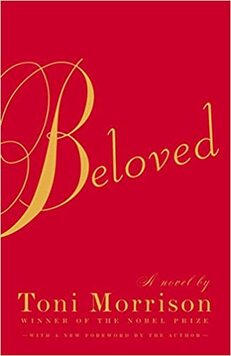 Joe Ford, of Louisville, Ky., responds to a recent blog post—and to our times. If you would like to share your thoughts on Clearing the Fog, please contact us here. Just three weeks before her death on August 5, 2019, I attended a showing of the documentary film Toni Morrison: The Pieces I Am at the Speed Museum Cinema in Louisville. Frankly, I had not read any of her works and knew next to nothing about her—I attended only after prodding from my wife, who consumes books at a prodigious rate and had read a couple of Morrison’s books. A wonderful film, if you get the chance. The documentary spent some time, not surprisingly, on Beloved, for which Morrison won the Pulitzer Prize in 1988. The novel is based on a true story—that of Margaret Garner, a slave for the Gaines family of Maplewood plantation, Boone County, Kentucky. In January of 1856, during the coldest winter in 60 years, the Ohio River froze over. A pregnant Margaret, her husband, Robert, and their four children as well as eleven others crossed the river just west of Covington, Kentucky, and made their way to Cincinnati, then split up to avoid detection. Nine slaves made it to safe houses and eventually to Canada via the Underground Railroad. Margaret, Robert, their children and Robert’s father and his wife made it to the residence of Margaret’s uncle, west of Cincinnati. Her uncle went to the abolitionist Levi Coffin for advice on how to get them to safety. Before her uncle returned with that advice, however, slave catchers and U.S. Marshalls first surrounded and then stormed the house. Though Ohio was a free state, the federal Fugitive Slave Law allowed return of slaves to their owners if caught in another state. Realizing that they would be captured and returned to slavery, Margaret killed her two-year-old daughter and wounded her other children, preparing to kill them and herself before she was stopped. And this is where I cried. There is first the almost inconceivable pain and anguish of a mother who would kill her children to save them from a life of slavery, suffering and brutality. Infanticide was not unknown for this very reason. But the legal ramifications about the case gained the most attention: would the Garners be tried for murder, which meant they would be tried as persons (and that their daughter was a person)? Or would they be treated as property to be returned to their masters? That is, is the issue murder or the destruction of private property? Property won, and they were returned to Kentucky and a life of bitterness, despair and abuse as slaves. Somehow this juxtaposition of human despair and societal degradation affected me profoundly; it wasn’t so much a change of opinion as a change of degree and a recognition of the cultural structure that supported slavery, free state or not. All pretense fell away. There is no confederate monument that should still stand. There is no argument about fidelity to preservation of a “culture.” There is only evil masquerading as something else, only another inexplicable example of man’s inhumanity to man. If we fly the Confederate flag (and my nephews do) we show our ignorance, and we say that rape, torture and forced labor are fond traditions, sort of like Thanksgiving at grandma’s. This is our legacy. It is how we got here. You tell me: is the despair gone? Is the degradation any less structural? So, no, in response to the question at the beginning of “Our Sins,” I don’t know when the outrage ends. But I, too, believe the looting will obscure the reason for the protests. We’ll follow our sad excuse of a president and concentrate energy and focus on the looting and completely lose sight of why there is so much anger. And we will feel justified to dismiss the true cause, because, you know, property is more valuable and more important than human lives. Legacy indeed. Certainly we have to transform ourselves first. And then our words and actions. Yes, we agree with the business owners whose neighborhoods have been looted or burned. It’s wrong. And, yes, we care about our police officers, many of whom have behaved in truly brave and Christian fashion during this unrest. But we have to speak to them and to others of what the protests are about. Black men are routinely killed, often by police. It is not right. Have that conversation. Speak up! The death of our fellow citizens, like George Floyd, should not happen in America. You don’t die for (allegedly, since there was no trial) trying to buy a pack of cigarettes with a $20 counterfeit bill. Keep the conversation focused on that. We need to care. Because it is the right thing to do. And because next it will be our sons and daughters, compliant after an arrest, after a mistake, or after a march for justice. Will they deserve to die?
1 Comment
Hannah Helm
6/5/2020 11:51:34 am
Thank you for this wonderful piece. Well said, especially how we cannot let the violence and looting cloud the real issue. I had not heard this story, but it is truly heartbreaking.
Reply
Your comment will be posted after it is approved.
Leave a Reply. |
Details
Archives
June 2023
Categories
All
|


 RSS Feed
RSS Feed